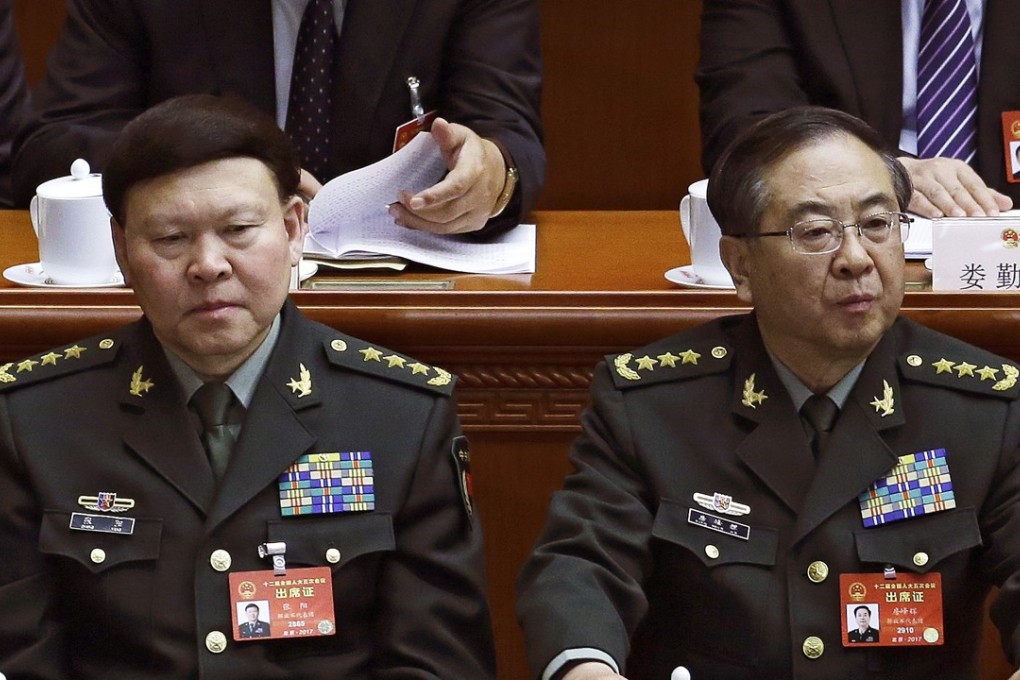Advertisement
Opinion | Why Xi’s anti-corruption drive in China’s military needs a long-term solution
Cary Huang says the number of PLA generals and officers caught in China’s anti-graft net is staggering but, given the lack of institutional reforms, the campaign may be more about efforts to firm up Xi Jinping’s grip on power
Reading Time:2 minutes
Why you can trust SCMP

Corruption in the People’s Liberation Army once again hit the global media headlines recently with reports that a disgraced Chinese general under investigation for graft had hanged himself at his Beijing home.
General Zhang Yang, a former head of the Central Military Commission’s Political Work Department, took his own life on November 23 amid a probe into “serious disciplinary violations”.
Zhang and another military heavyweight, former chief of general staff, general Fang Fenghui, alongside their disgraced bosses, former CMC vice-chairmen Guo Boxiong and Xu Caihou, were among the most senior officers to fall victim to the anti-corruption crackdown launched by President Xi Jinping since 2012.
Advertisement
Guo and Xu, both accused of bribery and embezzlement involving large sums of money, were protégés of former president Jiang Zemin. The disgraced officers were once considered political stars and rose quickly through the ranks under previous administrations.
Anti-graft tsar Wang expected to be named China’s vice-president
Despite retirement, Xi’s right-hand man Wang Qishan is still within arm’s reach
Advertisement
Select Voice
Choose your listening speed
Get through articles 2x faster
1.25x
250 WPM
Slow
Average
Fast
1.25x
